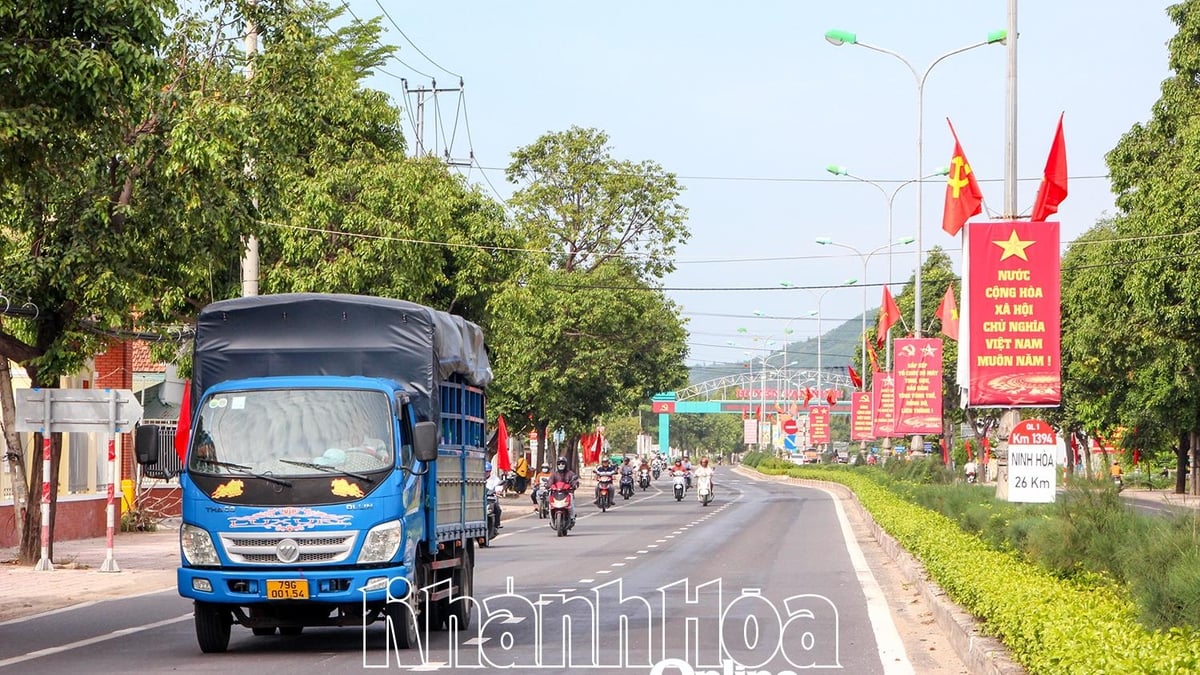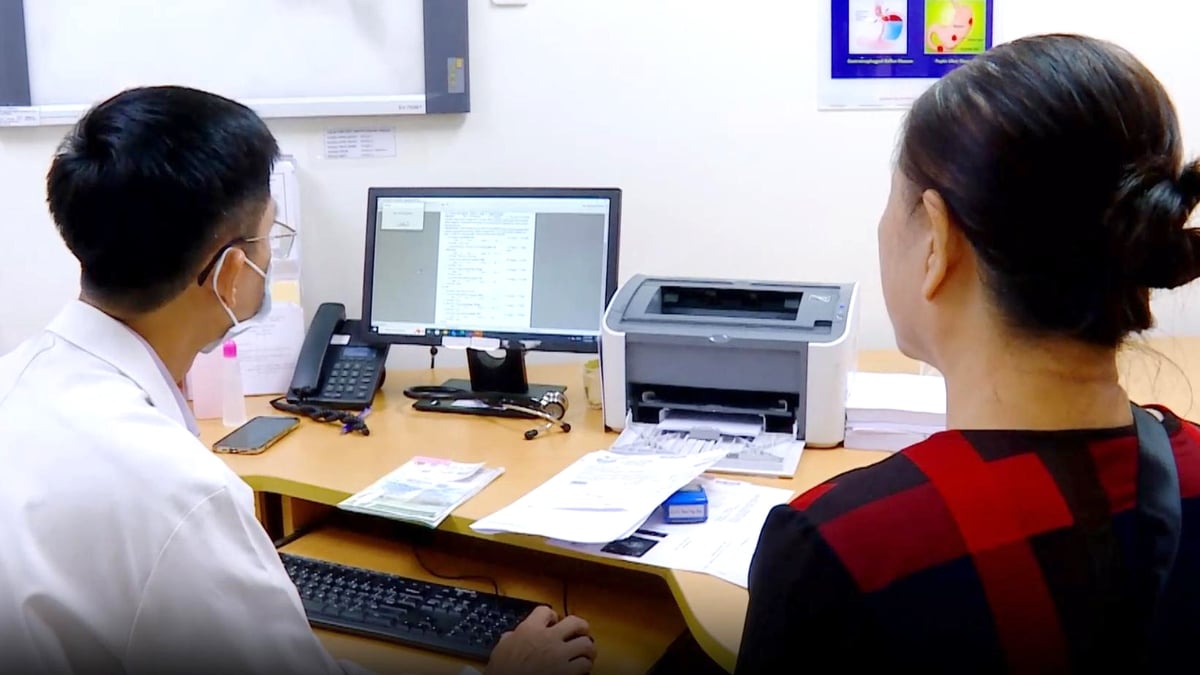Without proper media promotion, released “quietly” with 3 screenings per day during the Tet holiday, the state-ordered film “Peach, Pho and Piano” unexpectedly became a phenomenon in the Vietnamese film industry. The success of the film “revealed” many weaknesses in the communication, distribution and infrastructure of state-run theaters and cinema complexes if they want to continue to welcome the wave of “love for Vietnamese movies” from the audience.
Queue to buy tickets
"Peach, Pho and Piano" is a film ordered by the State, produced in 2023 with a budget of more than 20 billion VND, Meritorious Artist Phi Tien Son (Film Studio 1) is the director and screenwriter.
 |
| Poster of the movie “Peach, Pho and Piano”. Photo: LHPVN FB |
At the time the movie “Dao, Pho and Piano” was released, the Vietnamese Tet movie market was a competition between many “hot” movies. Among them, the movie “Mai” by Tran Thanh had an overwhelming number of screenings at commercial theaters. The strange success of “Dao, Pho and Piano” surprised not only the public but also the only film distributor at that time, the National Cinema Center ( Hanoi ), which was caught off guard.
“Peach, Pho and Piano” was officially released on February 10 (the first day of the Lunar New Year) with 3 screenings per day. From the 7th day of the Lunar New Year, after positive reviews on social media about the film, the number of viewers coming to the theater increased dramatically. The National Cinema Center continuously increased the screenings, from 3 to 5, then 11, 18 and 23 screenings on February 24… nearly 8 times higher than when the film was first released, but it was still not enough to meet the demand of viewers, because this was the only theater complex showing “Peach, Pho and Piano”.
Due to the large number of visitors booking tickets, the entire online ticketing system of the National Cinema Center including: Website, mobile application, bank payment pages had problems for 5 consecutive days. This movie is only sold directly at the counter.
Speaking to the press, a representative of the National Cinema Center said that as of the morning of February 26, the unit had sold 42,000 tickets for the movie "Peach, Pho and Piano", earning more than 2 billion VND. The center had to reduce the screening of the movie "Mai" by 50% to switch to showing "Peach, Pho and Piano".
Faced with the film's appeal, two private film companies, Beta Media and Cinestar Vietnam, proactively contacted the Ministry of Culture, Sports and Tourism (MCST) to screen the film "Dao, Pho and Piano" at their cinema complexes (with cinema systems in many provinces across the country) from February 22, and affirmed that they would submit all ticket sales revenue from the film to the State.
Mechanism paradox
There are many reasons for the unprecedented success of such a state-owned film. According to the Director of the Department of Cinema, Vi Kien Thanh, “Dao, Pho and Piano” is a quality film, worthy of the audience’s attention and support. The film has been noticed thanks to its spread on social networks, surprising managers, film distributors and distributors.
In addition, “Peach, Pho and Piano” was shown during the Tet holiday, receiving the leverage effect from “Tran Thanh’s film”. The image of audiences lining up to buy tickets due to the limited screening mechanism (in 1 theater) of the State further increased curiosity.
In fact, the Silver Lotus work “Peach, Pho and Piano” received media coverage after its completion. But that was a very traditional way of providing information to the press, without social media, without exploiting the appeal of actors, directors, characters, settings… And perhaps, “Peach, Pho and Piano” would have just passed by without meeting its audience, becoming a “shelved” work, if it had not had the social media effect from influential audiences.
Experts say the biggest obstacle to creating media scripts and bringing information about the film to a wider audience is the lack of funding for this work. Films made from the state budget are not allowed to be commercialized.
According to director Nguyen Huu Tuan, director of the film "For June", there are currently no regulations on state-owned film business. To do this, the State must establish a separate enterprise. If the operation is not effective, if the film is not successful, it will cause more budget deficit. This is very risky.
In recent years, the number of films produced by the State has been limited. Each year, the State orders 2-3 feature films, about 20 documentaries, scientific films and 20 animated films, with low production costs and no funds to distribute and popularize the films.
In terms of distribution, according to the previous policy, a film commissioned from the State budget would be shown for free to ensure wide access to the people. However, the paradox is that films produced using the State budget, not for commercial purposes, can only be shown at the National Cinema Center - the State's film distribution unit and 100% of the film screening revenue must be paid into the State budget.
The mechanism of screening films at only one State cinema also makes it difficult for audiences to access, especially when the film creates a buzz and attracts public attention. Meanwhile, the online ticket purchase of the State cinema has been down for many days and cannot be fixed, which also requires more investment in infrastructure for the National Cinema Center.
The Ministry of Culture, Sports and Tourism's approval of the release of films by two private enterprises helped "cool down" the ticket fever at state-owned theaters. However, because the films were shown without revenue, it can be seen that most of the large private film distribution units such as CGV, BHD, Galaxy... did not participate in screening even though the films were very popular. Representatives of some other private film distribution units said that films ordered by the State, but when released and distributed outside the private theater system, need to deduct a percentage for the distribution unit, because the unit had to invest a lot of costs to build and operate the theater system, so it could not be released without funds.
Director of the Cinema Department Vi Kien Thanh also admitted: There are still some shortcomings in widely distributing films, because "Dao, Pho and Piano" is a film that is fully funded by the State for production, but has no distribution budget. Therefore, in order to be able to distribute the film in private theaters nationwide, there must also be a percentage for the distribution unit.
It can be seen that bringing films using the State budget to theaters is a "test" and has initially shown positive signs. From the phenomenon of "Dao, Pho and Piano", many film experts have asked whether it is possible to build an "open" mechanism for systematic communication, wide distribution like other private films, and take a percentage of post-release revenue to reinvest and promote other art films...
| On February 6, the Ministry of Culture, Sports and Tourism issued Decision 316/QD-BVHTTDL, approving the pilot plan for releasing and disseminating a number of films produced using the State budget (pilot screening of state films with ticket sales). The Silver Lotus Award of the 23rd Vietnam Film Festival "Peach, Pho and Piano" along with "Hong Ha Nu Si" and 6 other animated films including: "Giac Mo Cua Con" (Golden Lotus), "Ba Cua Do" (Silver Lotus), "Cai Tail Cua Am", "Gia Vang Vang", "Co Be Toc Xu", "Nguoi Hung" are the first films in the pilot project for commercial screening of films funded by the state. |
According to VNA
.
Source























































![[Maritime News] Container shipping faces overcapacity that will last until 2028](https://vphoto.vietnam.vn/thumb/402x226/vietnam/resource/IMAGE/2025/7/30/6d35cbc6b0f643fd97f8aa2e9bc87aea)













































Comment (0)